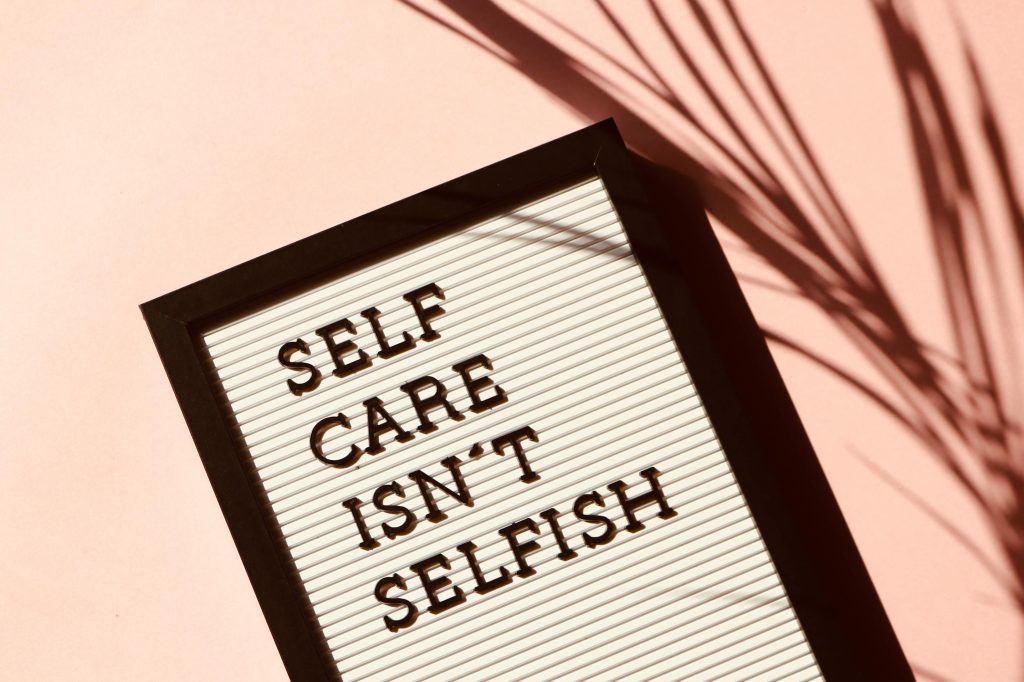When life gets busy, it’s easy to put your own needs on the back burner. Whether you’re a parent, a friend, a teacher, or someone working in a helping profession, you may often find yourself showing up for everyone but yourself. You make time for others, lend an ear, offer support, and keep going, even when you’re running on empty.
While it may feel noble to constantly give, the truth is that you can only be your best for others when you first take care of yourself. Ignoring your emotional, physical, and mental well-being can eventually lead to burnout, resentment, or fatigue. And when that happens, the quality of help you offer others begins to suffer.
Self-care isn’t selfish. It’s necessary. And it’s the foundation that allows you to be fully present, engaged, and effective in your relationships and responsibilities. In fact, the people who are most skilled at helping others often understand this deeply. They know that helping starts from within and that caring for yourself is not just a luxury but a responsibility.
Understanding the Link Between Self-Care and Service
If your goal is to make a difference in the lives of others, you need to be emotionally grounded and mentally clear. It is especially true in fields like therapy, counseling, or social work, where your emotional well-being directly impacts the people you serve. However, the same principle applies to everyday life. Your ability to support others improves when you’re functioning at your best.
This concept is deeply emphasized in advanced education paths designed for those pursuing careers in mental health and family counseling. Many online marriage and family therapy masters programs are built to help students strengthen their emotional wellness while learning how to counsel others effectively. These programs often integrate Christian principles, clinical training, and personal development, preparing future therapists to support couples and families while maintaining their own mental and emotional balance.
But this mindset isn’t only for professionals. You don’t need to be a therapist to benefit from learning how to manage stress, set healthy limits, and make space for reflection. When you learn how to support your emotional health, you become more effective in every role, whether you’re helping your family, supporting a friend, or managing a team.
The Ripple Effect of Personal Wellness
When you prioritize your wellness, it doesn’t just help you. It helps everyone around you. Think about the people in your life who handle stress well, stay calm in tough situations, and offer thoughtful support. Chances are, they’re people who take care of themselves. They set boundaries, get enough rest, and take time to recharge. And because of that, they’re more emotionally available to others.
The same applies to you. When you’re rested, emotionally balanced, and mentally clear, you’re able to listen better, respond more calmly, and make smarter decisions. Your relationships improve because you show up as your best self, not a drained or distracted version of yourself.
Another key point is that people watch how you treat yourself. If you’re constantly burned out or overcommitted, that sends a message, especially to children or those who look up to you. But if you model good self-care habits, you permit others to do the same. It creates a ripple effect of healthier choices, boundaries, and emotional awareness within your circle.
Common Myths About Self-Care
One of the biggest reasons people avoid self-care is because of the myths surrounding it. Some think it’s selfish or indulgent. Others believe it’s about spa days and fancy treats. But real self-care goes much deeper than that.
First, it’s not selfish to take care of yourself. In fact, it’s a form of responsibility. When you take time to meet your own needs, you reduce the chance of becoming overwhelmed, short-tempered, or emotionally unavailable to others.
Second, self-care isn’t just about relaxation. While rest is important, true self-care also includes things like setting boundaries, saying no, asking for help, and taking care of your mental health. Sometimes, it means making tough choices or removing yourself from situations that drain your energy.
Lastly, the idea that there’s “no time” for self-care is misleading. You don’t need hours each day to take care of yourself. Even small habits, like a five-minute walk, journaling before bed, or taking a short break during a busy day, can have a big impact over time.
How to Begin Prioritizing Yourself
Starting with self-care doesn’t mean overhauling your life overnight. It’s about small, steady shifts in how you treat yourself. Begin by checking in with yourself regularly. Ask how you’re feeling physically, mentally, and emotionally. Are you overwhelmed? Tired? Disconnected? Just noticing those signs is a powerful first step.
Create small routines that bring you back to the center. Maybe that’s waking up ten minutes earlier for quiet time, turning off your phone at a certain hour, or going for a short walk during lunch. The key is consistency, not perfection.
Also, don’t hesitate to seek support. Talking to a therapist, counselor, or support group can help you understand what self-care looks like for you. It’s not one-size-fits-all. What works for someone else might not feel right for you, but that’s okay.
Most importantly, give yourself grace. There will be days when self-care feels harder. What matters is that you keep showing up for yourself in the ways you can.
Helping Others Starts with Being Present
One of the greatest gifts you can offer someone else is your full presence. Being present means you’re truly listening, understanding, and engaging with them without distraction or judgment. But it’s hard to do that when your mind is overloaded, or your emotions are frayed.
Self-care lays the groundwork for presence. When you’re well-rested, emotionally balanced, and mentally clear, you’re better able to show up for others. You can be patient when someone needs time to process. You can stay calm when a situation becomes tense. You can offer genuine empathy rather than forced support.
On the other hand, when you’re depleted, your ability to help is limited. You may offer advice out of frustration or check out emotionally when someone needs you most. That’s why taking care of yourself isn’t optional. It’s the first and most important step in being a truly helpful person.
It’s easy to fall into the habit of putting everyone else first. But the truth is, you can’t fully support others if you’re neglecting yourself. Your energy, attention, and care all come from the same source: you. And when that source is drained, everything else suffers.
Taking care of yourself doesn’t make you selfish. It makes you sustainable. It allows you to offer better care, deeper connection, and more lasting support to the people who matter most.
So, if you’ve been feeling overwhelmed, stretched thin, or emotionally tired, take that as a sign to pause. Choose one self-care habit, no matter how small, and start there. Because when you begin by taking care of yourself, you’re not just helping yourself. You’re making it possible to help others even more.





